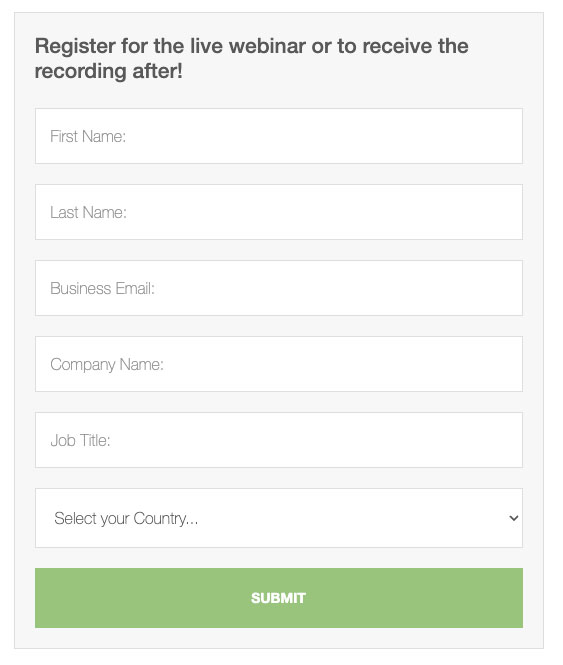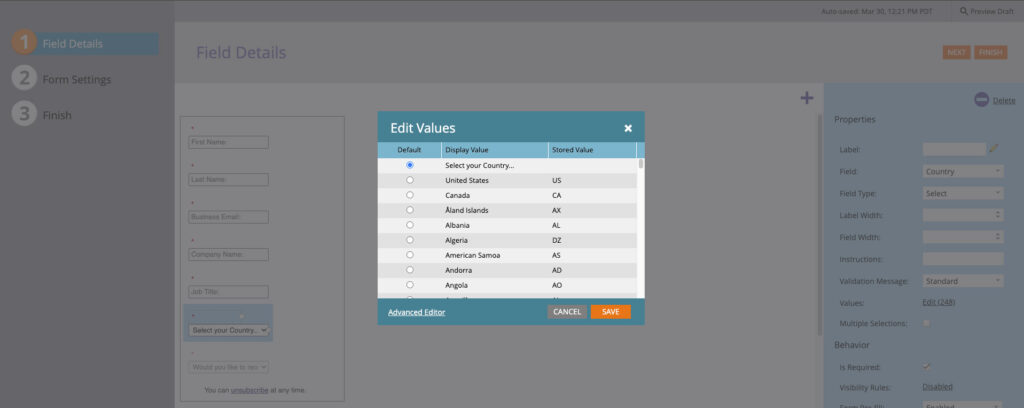Let’s talk about some of the impacts on your email operations and marketability when your data quality isn’t up to snuff.
What issues impact the management of Privacy Compliance?
To operationalize a privacy compliance program, several key data points are necessary to determine marketability and data privacy management. Not only are we answering the age-old question, “Can I send them an email?” but also determining if we can keep or maintain their records in the database.
Why should companies manage data quality?
Data quality is your number one risk when setting up a privacy compliance process among other operational workflows that manage legal requirements for processing data and messaging users. For example, where is your “location” data coming from that you’re using to calculate which Privacy Compliance laws apply to your database?
Are you using user-supplied (on your marketing forms) data about the prospect’s location? You have a worse user experience for asking a question you should already know the answer to, but this way you’re very protected because it’s a prospect-supplied answer.
Are you using IP-inferred location to choose country? This isn’t a bad approach, and I think it has the greatest reasoning behind implementing at this level. Sure, VPNs are going to muck your data, and traveling businesspeople may enter your marketing database under other country privacy laws. You can plan for this, though, and watch prospects for their devices popping up in DIFFERENT country locations after the original “location” (and therefore, which subset of Privacy Compliance rules). When a known user interacts from a device in a new privacy-compliance-segment, recalculate those business rules and make a choice to be stricter or less strict in this case.
Are you using a prospect’s company headquarters? Definitely don’t do this one unless you have no better data foundations. Privacy Compliance laws are based on where the PERSON is residing and visiting the web properties from.
When should you improve data quality?
Data quality is critical to all marketing automation processes – so the more accurate your records are, the higher confidence you can have that your system is working correctly. Collecting the required data directly from the end-user is the highest quality source of data you can get, but sometimes it’s unavailable. Perhaps your database is older or your forms don’t collect a location.
How should a company address data quality issues?
Let’s review the top data quality issues for Privacy Compliance and how to address them:
Incomplete Data
Privacy compliance requires data including a record’s location, consent capture, and history of interaction with your organization. Without any of this information, legal teams often require you to set a record as Marketing Suspended! This reduces your overall marketable database size and it can be hard to capture this information without the ability to email records!
Solutions:
- Update all web forms to capture complete data sets on submission
- Utilize trusted data enrichment services on older records in your database
- Reduce or eliminate the reliance on sales-sourced records where you cannot capture consent upfront
Non-standard Data
Open text fields are your worst enemy with marketing automation. MAPs cannot natively tell the difference between US, U.S., the United States, and other permutations and misspellings in a field without a serious contains filter configuration and constant vigilance for new non-standard values.
Be careful though – setting Salesforce to require standardized field values in Country and State without cleaning the data first can cause significant sync issues until the data is updated.
Solutions:
- Reduce and eliminate open text fields when data can be standardized
- Adding enrichment to prefill forms can help standardize data on input
- Create a “contact washing machine” operational program that updates fields to standardized values
Incorrect and Inconsistent Data
Incorrect data is a problem you probably don’t realize you have! We often review our database for completeness and standardization – not accuracy. Aside from the obvious legal risks associated with getting it wrong here, you also damage your relationship with a contact when you message them out of turn.
Solutions:
- Actively remove unengaged and stale records from your database
- Data enrichment services can help spot-check and fill in blanks
- In the event of conflicting data points (i.e. enrichment vs. inferred values) work with your legal team to determine a priority order of data to use
Who should make these decisions at your company?
There is no universal legally-tested-and-approved standard of how to implement these laws in leading Marketing Technologies now in 2023, so your legal team will be reinterpreting the wheel. That means that if you have a company power structure where Legal has greater say than Revenue, you’ll get the risk-adverse interpretations of these laws. The inverse case will get you risk-tolerant interpretations. Make sure your Legal Team is aware of the business costs in risk-adverse interpretations, and make sure the person being advised by the Legal Team is aware of the costs of sweeping decisions that may decrease your top-of-funnel and mid-funnel prospects by 90%.
Ask for specific information and document their responses. Did you hear me? DOCUMENT THEIR RESPONSES, WITH TIMESTAMPS.
Data Quality Aging increases risk of legal exposure
Data quality problems can significantly impact the accurate management of privacy compliance in your database. To avoid embarrassment and potential privacy violations, addressing common data quality issues such as incomplete, inaccurate, outdated, or non-standardized data and mismanaged data processing is essential.









